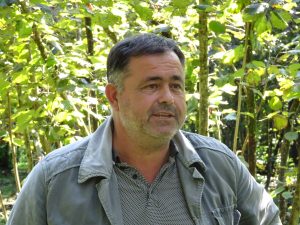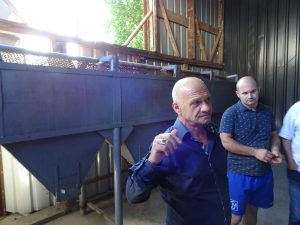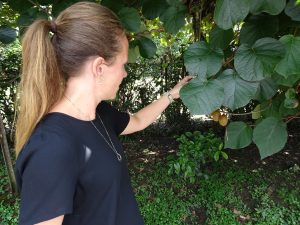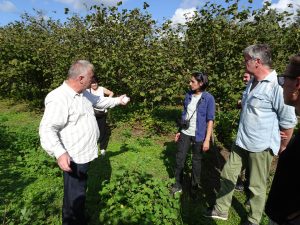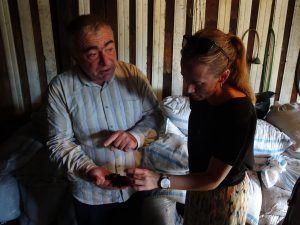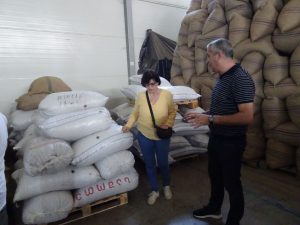Organic hazelnut value chain creates income and decent employment in Western Georgia
The project’s main goal was to improve the livelihoods of Georgian farmer families sustainably through organic and fair-trade hazelnut production, ensuring profitable sales via traceable value chains. The project successfully introduced Georgia’s first organic group certification system for hazelnut farmers, benefiting around 600 smallholders by cutting certification costs and boosting profits from organic hazelnut sales. In 2024, approximately 450 farmers are expected to attain organic certification, with others in the conversion phase.
PAKKA, the project’s commercial partner, paid premiums for the hazelnuts and provided additional support to the farmers, such as a deposit system allowing hazelnut storage until market conditions improved. PAKKA’s partnership with GEBANA, Swiss online retailer of organic products, further enhanced the benefits.
As part of the project the Caucasnut Association was formed, which is an umbrella organization uniting all of the cooperatives of the project. The Caucasnut association is entrusted with overseeing the certification process and the sales of hazelnuts. Adhering to the group certification principle, organic hazelnuts were channelled through the association for sale. Moreover, Caucasnut extended various services to its members, including bulk purchasing and the provision of organic garden care products like pesticides and fungicides.
The project implemented fair-trade certification. This involved the Fairtrade Labelling Organization International (FLO) developing a hazelnut standard specifically tailored to the Georgian context, which didn’t exist previously. The impetus for this development was the active engagement of the project and development of the Georgian organic hazelnut sector. Under this certification, 15% of the invoice value from the sales of fair-trade hazelnuts is allocated to the Caucasnut Association. These gains are directed towards addressing the needs of beneficiary farmers, as determined by the association’s management.
The project has undertaken various initiatives that not only benefit hazelnut production but also contribute positively to environment and climate resilience. Alongside promoting organic practices and fair-trade certification, the introduction of compost and vermicompost farms adds another layer of environmental sustainability. These farms play a crucial role in enhancing soil health, thus mitigating the effects of climate change. As these practices are slowly becoming integral part of the hazelnut production cycle, they form a sustainable loop, wherein environmental stewardship and agricultural productivity reinforce each other, ensuring the long-term viability of hazelnut farming while fostering climate resilience.
Administrative Partner HEKS/EPER - Swiss Church Aid Key Commercial Partner PAKKA AG Other Partners Biological Farming Association Elkana, Pakka Georgia Country Georgia Sector Agriculture & agro-processing Open / Closed Closed Duration July 2018 - August 2024 Approval Year 2017




